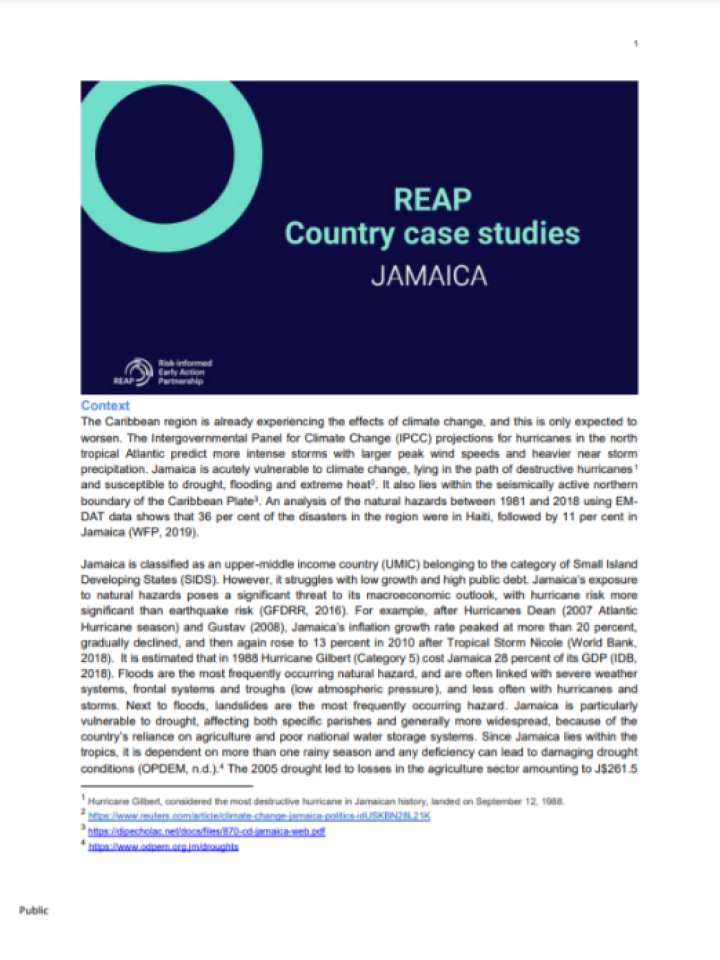REAP country case studies: Jamaica
This document outlines the risks faced by Jamaica and the relevant policies, initiatives, and institutions for managing risk and supporting anticipatory action (AA), social protection, and insurance risk mechanisms. Jamaica is acutely vulnerable to climate change, lying in the path of destructive hurricanes and susceptible to drought, flooding and extreme heat. Jamaica is classified as an upper-middle income country belonging to the category of Small Island Developing States (SIDS). However, it struggles with low growth and high public debt. Jamaica’s exposure to natural hazards poses a significant threat to its macroeconomic outlook, with hurricane risk more significant than earthquake risk.
The analysis finds that Jamaica faces a myriad of challenges includes the weak enforcement of legislation, inadequate resources, a lack of organisational capacity and challenges in scaling down legislation implementation to the parish and local levels. The leadership of Office of Disaster Preparedness and Emergency Management has been in flux over the last five years which has caused significant delays in the operationalisation of the office. This has impeded the government’s capacity to absorb support. There are many enabling factors and opportunities for making Jamaica’s social protection more shock responsive, however, and the Jamaican government has signed up to many timely initiatives, providing the space to engage in developing synergies among the initiatives and works towards operationalising the humanitarian-development nexus.
Explore further
